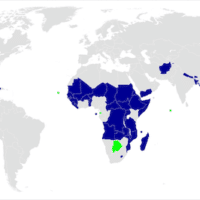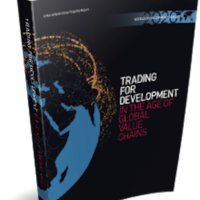-
Russia and the Ukraine crisis: The Eurasian Project in conflict with the triad imperialist policies
We wanted to draw readers attention to this piece by Samir Amin, which was written at the time of the Maidan Coup in 2014. —Eds. 1. The current global stage is dominated by the attempt of historical centers of imperialism (the U.S., Western and Central Europe, Japan—hereafter called “the Triad”) to maintain their exclusive control […]
-
The Left has culture, but the World still belongs to the banks: The Sixth Newsletter (2022)
Dear friends, Greetings from the desk of the Tricontinental: Institute for Social Research. ‘[T]here is great intellectual poverty on the part of the right wing’, Héctor Béjar says in our latest dossier, A Map of Latin America’s Present: An Interview with Héctor Béjar (February 2022). ‘There is a lack of right-wing intellectuals everywhere’. Béjar speaks […]
-
Warnings from the Far North
“Breaking the food chain that supports billions of creatures” is horrific to contemplate.
-
Climate litigation up in 2021, with private sector now exposed
This year’s successes include Shell becoming the first company in history to be held legally liable for contributing to climate change.
-
Chávez the Radical XXVI: ‘What are Privatizations?’
The Bolivarian Revolution represented a break from neoliberal governments. Is the tide turning? Tatuy TV examine that in this episode of “Chávez the Radical.”
-
Neoliberal apotheosisCOP26 creates the global fire market and offers it to capitalist arsonists, at the expense of the people
The balance sheet is clear: on paper, Glasgow clarifies the ambiguous Paris goal by making it more radical (1.5°C is now the target) and mentions the responsibility of fossil fuels; but in practice, the conference did not take any steps to stop the catastrophe.
-
Canadian imperialism in Africa
Canadian imperialism in Africa has had a rare social media moment.
-
Law, code and exploitation
By the end of April 2020, the coronavirus epidemic outbreak was reaching millions. Thousands were dying daily. Nearly one third of the worldwide population was experiencing different degrees of forced quarantine.
-
Allow least developed countries to develop
The pandemic is pushing back the world’s poorest countries with the least means to finance economic recovery and contagion containment efforts. Without international solidarity, economic gaps will grow again as COVID-19 threatens humanity for years to come.
-
The urgent need to tax billionaires out of existence
A wealth tax would raise badly-needed revenue. More importantly, it could reduce the fortunes—and power—of billionaires.
-
Understanding development in a Global Value Chain World: Comparative Advantage or Monopoly Capital Theory?
The recent period of globalisation–following the collapse of the Eastern bloc and the integration of China into the world economy–is in essence the period of global value chains (GVCs).
-
My wish is that you win this fight for truth
On 26 January, India’s Republic Day, thousands of farmers and agricultural workers will drive their tractors and walk into the heart of the capital, New Delhi, to bring their fight to the doors of the government.
-
We can’t bank on climate action
Bank of England forced to deny taking basic climate actions after hoax from laughtervists, the Yes Men.
-
Billionaires’ net worth grows to $10.2 trillion during pandemic
The super-rich increased their combined fortunes by 27.5% during the worst of the market turmoil from April through July.
-
Sinophobia Inc: Understanding the anti-China Industrial complex
Take a deep dive into the inner workings of Sinophobia Inc. to learn how to see through the media machine.
-
The world can show how Pharma monopolies aren’t the only way to fight COVID-19
The U.S. has bought up almost all of the stock of remdesivir from Gilead, making it nearly impossible for this COVID-19 drug to be available anywhere else in the world.
-
BlackRock’s rise shows the dark direction of monopoly capitalism
Matt Taibbi concluded that the 2008 Wall Street bailout had “built a banking system that discriminates against community banks, makes Too Big to Fail banks even Too Bigger to Failier, increases risk, discourages sound business lending and punishes savings by making it even easier and more profitable to chase high-yield investments than to compete for small depositors.”
-
Venezuela denounces ‘absurd decision’ of UK to retain its gold reserves
A British high court ruled on July 2 that because the UK recognizes opposition leader Juan Guaidó as president, it does not have to give the government of Nicolás Maduro access to the reserves.
-
Elon Musk is acting like a neo-Conquistador for South America’s lithium
Elon Musk, the head of Tesla, wants to build an electric car factory in Brazil. He was supposed to meet Jair Bolsonaro, the president of Brazil, in Miami in early March, but he was too busy; instead, Musk will go to Brazil sometime this year.
-
WhatsApp and fake news, or how to kill democracy
Fears and anxieties are used to create and diffuse fake news and manipulate the electorate. This is what happened at the last Brazilian election. A group of researchers studied the case in order to develop a method to deal with fake news.




















